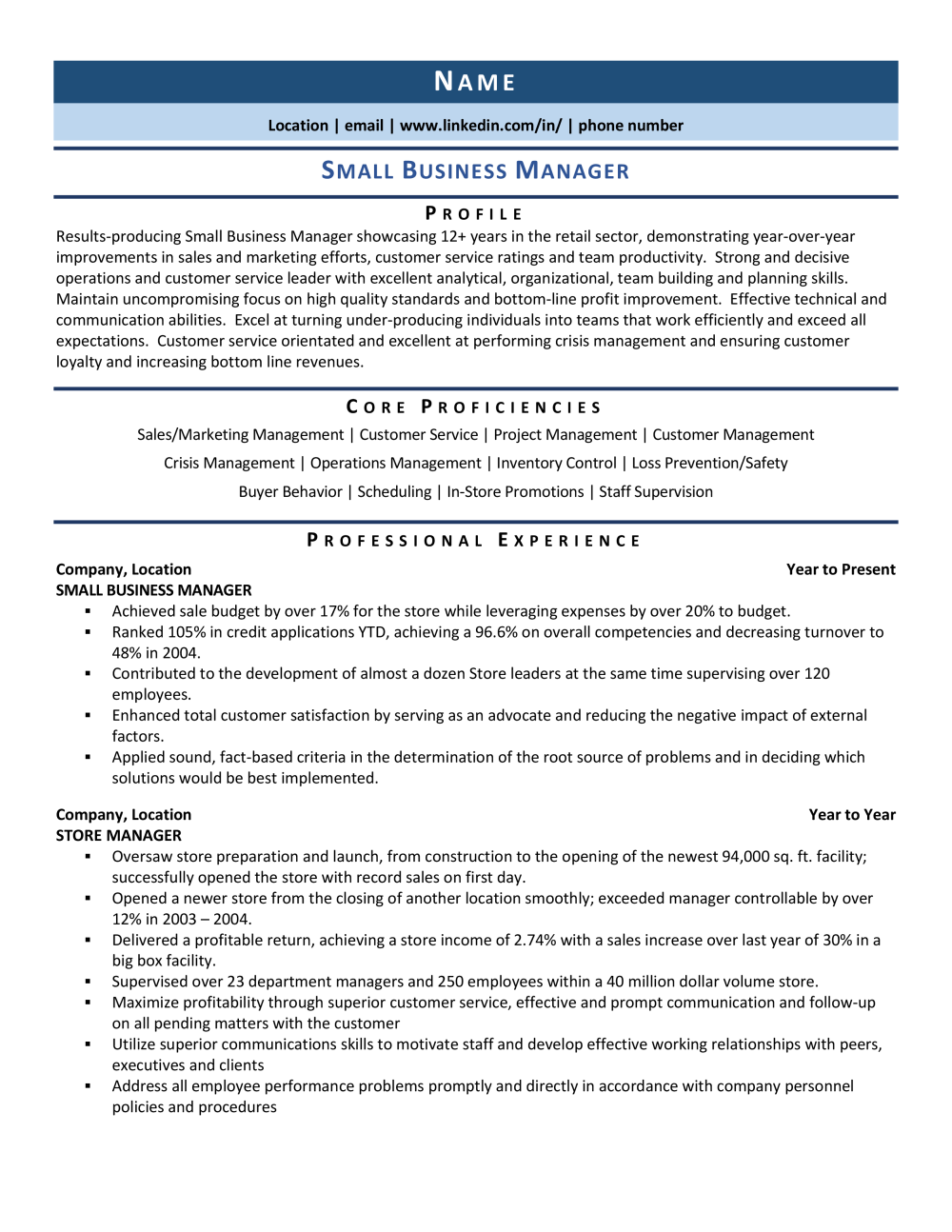Startup Resume: Example and Key Details to Include

So you worked on a startup or your own small business for a while and it either didn't go well… Or, it got acquired. Either way, you're looking to update your resume and get back in the job hunt. We’ve got your back.
If you approach including a startup in your resume the right way, it could be very effective. Of course, there are certain situations where you should not mention your startup which we'll go through later on. However, it’s smart to know when and, more importantly, how to include it.
Luckily, we've got you covered! In the following guide, we'll show you exactly how to write a startup resume and when you should include this experience. Here’s what you need to know.
Should I list my startup or business on my resume?
First up, let’s deal with the burning question: should you list a startup on your resume? Often enough, the answer to this question is yes. While many candidates are concerned about including this work experience on their resume, you needn’t be.
In the eyes of a hiring manager, the fact that you worked at a startup may be a major plus. Let’s face it, working on a startup or small business shows a lot of effective skills and traits regardless of your outcome. It shows leadership, critical thinking, and determination.
Most employers and companies also like to see an entrepreneurial mindset in their employees, because entrepreneurship is all about delivering good service and making money or a profit. So, the skills you learned while working at a startup will be transferable.
But what about the cons here? Frankly, the only drawback you may face from a prospective employer is that it's usually unverifiable. You can claim marvelous skills and knowledge you acquired but it would be nearly impossible to verify for an employer or recruiter. You would really have to prove yourself during the job interview. Keep that in mind here.
Should I list my failed startup or business on my resume?
Okay, but what if your startup failed? Should you still include it on your resume? Once again, the answer here may be yes. Writing a startup resume will show the employer that you had the go-getting attitude to start a (or work within a) fledgling business in the first place.
It won’t come as a surprise to the hiring manager that the business failed. The chances of success for your first startup are really against you. Even the most successful entrepreneurs had many failed attempts until they found success. You should ensure that you list the more relevant skills and knowledge you acquired while working on your startup.
When should you not list your startup or business?
Of course, there are times when you wouldn’t want to create a startup resume. Listing this experience is not always beneficial to your application. Confused? You don’t have to be. Let’s take a look at the main instances in which you should not list your startup experience.
The startup is still active and in the same industry
Let’s say you are running a startup as a side hustle. If it’s in the same industry as the job for which you are applying, the hiring manager may think that you are their competition. Additionally, it could look as though you are biding your time until your business works out.
You don't want to highlight a startup that you're still running because if it eventually takes off, your hiring manager would expect you to leave. The last thing an employer wants to do is spend all that money hiring someone who may leave in a few months. They also want you focused on your current job and not your startup.
You also don't want to mention your startup if it's in the same exact industry. The hiring manager will think that you either want to grow your knowledge or obtain trade secrets to grow your own startup.
Even though these situations may not be your goal, it's best to leave your startup off your resume in this case and focus on other relevant skills and work experience. If you have a large gap in your resume because of the startup you may want to use the functional resume format. You can read more here on how to deal with employment gaps on your resume.
The startup is demanding all of your time
Equally, the hiring manager doesn’t want an employee who will do half a job. If you have a startup that is taking up all of your time, highlighting this one your resume could be a mistake. You don’t want to give the reader the impression that you have no time to work.
If your startup is currently running and taking up your free time, it may be smart to play this down on your resume. Giving the potential employer a hint that you may not be in it for the long haul is a bad move. Before you decide to include it, consider what it tells them about you. While you should never lie on your resume, you don’t have to mention how you spend your spare time. Have a long, hard think about whether you want to submit a startup resume.
The startup has nothing to do with the vacancy
If you were a part of a startup that is irrelevant to this vacancy, you may not gain anything from including it. So, if you are already short on space, you don’t want to cram this extra section into your application. Should you already have a wealth of work experience — that aligns with the job in question — you may want to leave your startup experience off.
You don’t want to throw the hiring manager a curveball. For example, should you be applying for a teaching role, you may find that a startup resume doesn’t fit the bill. You need to determine this on a case by case basis. Resume real estate is extremely valuable, after all.
Including self-employment on a resume
But wait, what if you’re self-employed rather than having a startup? The truth is that the information you share would be the same for self-employment as well. Try not to over exaggerate your skills and knowledge in regards to your self-employment. A few short bullet points of relevant tasks are just fine as it's really unverifiable to the employer.
How to include a startup or other self-employment on a resume
If you’ve read all of the above and you want to create a startup resume, we have the answers you need to get started. Including your startup or business on a resume would be very similar to the way you would include any other work experience. Follow these steps when including a startup in your work experience:
1. Start with the basics
Include the name of your company and the dates you worked on it. Include your role within this business. If you started the company, this would typically be founder, co-founder, or CEO. Of course, if you took on multiple roles, you should always list the job title most relevant to your new job target, such as Chief Marketing Officer or Director of Finance.
2. Showcase your experiences
Look at the job description and come up with four to six points where your skills and knowledge from your startup relate in some way to the position. You should bullet point these as you would your core duties of any other job role.
Make sure that you quantify your experiences. When it comes to a startup resume, it can be hard to provide evidence for the claims you make. Put simply, the hiring manager cannot verify your statements with your previous employer since that is you. However, if you add other forms of evidence — such as statistics, profits, and timeframes — this is verifiable.
Expert Tip
You need to make sure that the experience you share is relevant to the job and engages the reader. Here are three posts that go into more depth on this:
3. Feature transferable skills and competencies
As we have already mentioned, launching (or working within) a startup gives you a whole load of skills. You will have had to have an entrepreneurial spirit to take this leap of faith. For that reason, you need to make sure that you list the transferable skills in your core competencies section. Chances are, you learned a whole load while working in the startup.
When you are applying for a job, always consider what transferable skills you have. For example, if you launched a startup, you may have had to take on the accountancy duties. In that case, you can note the talent you acquired or even that you are proficient in certain software. Adding these to your skills section could help you stand out from the crowd.
Startup or self-employment on resume example:
Not sure how a startup resume looks? We have an example to give you the inspiration that you need. Take a look at the resume example below and emulate its style:


Your resume's title — distinct from your work experience job titles — should use whatever title you held: co-founder, CEO, president, or founder. If you didn't have a formal title, you can use the most relevant title for your experience and current career target.
Including your startup, self-employment, or small business on a cover letter
It's really hard to emphasize your enthusiasm to join a company after a failed startup on your resume. This is why a cover letter is a great place to state your case. You can use this space to explain what happened to your startup and what you learned along the way.
The hiring manager will be questioning how long it will be until you want to launch another startup. Take this opportunity to put their mind at rest. You don’t want to look unstable. If the reader thinks you’re a flight risk, for example, they are likely to overlook your resume.
Of course, you can better explain yourself at an interview. However, you need to win over the hiring manager in your cover letter. You want to emphasize that you want to stay and grow with the company for the long term. There are some points you should include on the cover letter which will help lead to the interview.So, you should emphasize these two points on a cover letter:
The fact that you're excited for the opportunity to work for the company and be part of a team
Your skills and knowledge gained from your startup are relevant and perfect for the position
Here is an example:
After working on my startup XYZ for the past 2 years, I've gained a deep knowledge of marketing, customer acquisition and sales. I'm very enthusiastic about joining [company name] where I'm confident that my skills and knowledge will help grow the company for the long term. I feel my experience fits in perfectly with the position open and would be grateful for the opportunity to interview.
Should you mention why the startup or business failed?
Answer: Only if it was acquired.
If your startup failed for other reasons, it's best to leave it that part off your resume. As we have mentioned, the hiring manager won’t be surprised that a startup failed and it doesn’t have to be negative. However, you don’t need to highlight the reasons on your resume. Still, you should come up with a solid answer if they ask you why it failed at the interview.
Final words
Ready to get started and work on your startup resume? In this guide, we have given you the tools that you need to succeed. Follow our advice on when you should include this experience in your application and how to position your experience correctly. Remember, the aim of the game is always to boost your chances of landing that all-important interview.
Looking for a new job? If you want to climb the career ladder, check out our free resume review tool now. Get the insights you need to beat the competition!

